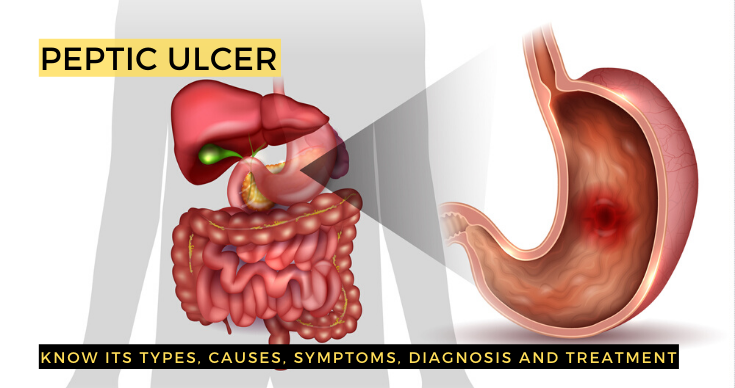Do You Have Gastritis? Abstain From These Foods
In simple words, gastritis is inflammation that happens near the lining of the stomach. Living with gastritis is not easy. When you’re diagnosed with gastritis by a gastroenterologist, you will have to make a lot of changes in your life style. The biggest mandatory transformation you make is in your diet. If you have gastritis, you need to follow a specific diet for a healthy digestive system.
Today, ILS Hospitals, one of the best hospitals in Kolkata and Agartala will brief you about the foods that you must refrain from if you are suffering from gastritis.
Fried and fatty foods
Fried and fatty foods causes bloating and can even worsen your gastritis. Instead of deep-fry, opt for other healthier cooking mediums – stir-fry, air fry, roasting, steaming, and baking.
Spicy foods
Foods with a lot of chillies and spices are strictly prohibited in a gastritis diet as they worsen yours symptoms. If you have gastritis, ensure that your meals have fewer spices with low use of chillies.
Acidic foods
If you are a food lover which tends to be acidic in nature, then stop doing so. While suffering from gastritis, these foods will cause more harm than good.
Dairy products
Dairy products are beneficial for one’s health. But someone with gastritis should rather avoid the consumption of milk and its by-products as they can aggravate the gastritis symptoms.
Carbonated beverages
Carbonated drinks are not good, more so for gastritis patients. Avoid drinking soda and carbonated beverages.
Caffeinated beverages
Caffeinated beverages, like tea and coffee, should rather be avoided. If you can’t avoid them, then try to cut down the consumption. Switch to healthier alternatives, like green or matcha tea.
Alcoholic beverages
Consumption of excess alcohol or addiction of the same is not good for your health. It would be best if you stop consumption of alcohol completely.
If you face any gastritis related issue, visit ILS Hospitals in Kolkata and Agartala to consult our renowned gastroenterologists.
Peptic Ulcer: Types, Causes, Symptoms, Diagnosis And Treatment
A peptic ulcer is an inflammation that develops in the lining of the stomach, the lower part of the esophagus and upper portion of the small intestine. It is a gastroenterological condition and thus, treated by gastroenterologists. They are open lesions and mainly of three types based on their location as follows:
-
Gastric (stomach) ulcer: Ulcers that occur in the stomach.
-
Esophageal ulcer: Ulcers that happen in the esophagus.
-
Duodenal ulcer: Ulcers that develop in the upper portion of the small intestine.
It is important to know why peptic ulcer happens in the first place. The primary reason behind the occurrence is when the stomach acids responsible for digestion damages the lining of the stomach and sometimes even travel to the esophagus causing esophageal ulcer. The bacteria Helicobacter Pylori (H. Pylori) also contributes by inflaming the lining of the stomach. Surely, other causes are present as well which you’ll find below:
-
Smoking
-
Overuse of over-the-counter drugs
-
Infection from H. Pylori bacteria due to consuming contaminated food, water, using uncleaned utensils etc.
-
Overconsumption of alcohol.
Let’s now focus on the symptoms of a peptic ulcer.
-
Indigestion
-
Heartburn or acid reflux
-
Vomiting or regurgitation
-
Bloating and burping
-
Belching
-
Black stools
-
Nausea
-
Fatigue
-
Unintentional or unexpected weight loss
-
Loss of appetite
-
Pain in the abdomen and chest
-
Facing difficulties in breathing.
A diagnosis is always needed to confirm any medical condition. Apart from the mandatory physical examination in which the doctor check for bloating and pain, certain other crucial diagnostic tests can also be prescribed by the medical professional for an accurate diagnosis. They include:
-
Blood test – to determine the presence of H. Pylori bacteria.
-
H. Pylori stool antigen test – to look for H. Pylori infection.
-
Urea breath test or H. Pylori breath test – to conduct this test, the patient is asked to consume something with radioactive carbon (either in pill or liquid form) and then the breath samples are taken for lab testing procedure which accurately confirms the existence of the bacteria.
-
Gastroscopy – an endoscope is anaesthetically inserted inside the patient’s mouth to view the stomach, duodenum and esophagus for ulcers.
-
Endoscopy biopsy – the same as gastroscopy and in case of an ulcer detection, the samples are taken for clinical purposes.
The treatment options are as follows:
1. Antibiotics (to kill the bacteria, H. Pylori)
2. Antacids (to neutralize the stomach acid)
3. Cytoprotective drugs (to protect the mucous lining of the stomach)
4. Surgical treatment (if the above method fails and the ulcer recurs)
Get accurate diagnosis and treatment for peptic ulcer only from ILS Hospitals, one of the best hospitals in Kolkata and Agartala.












